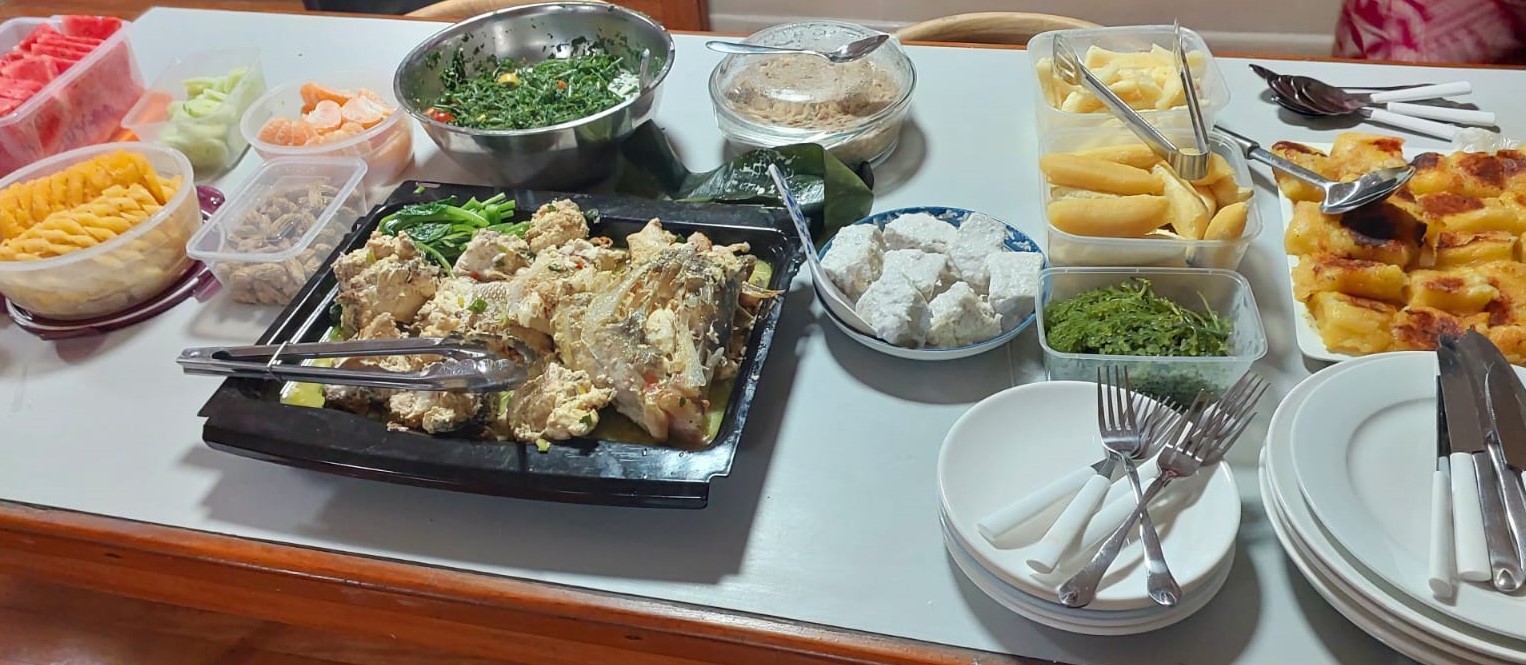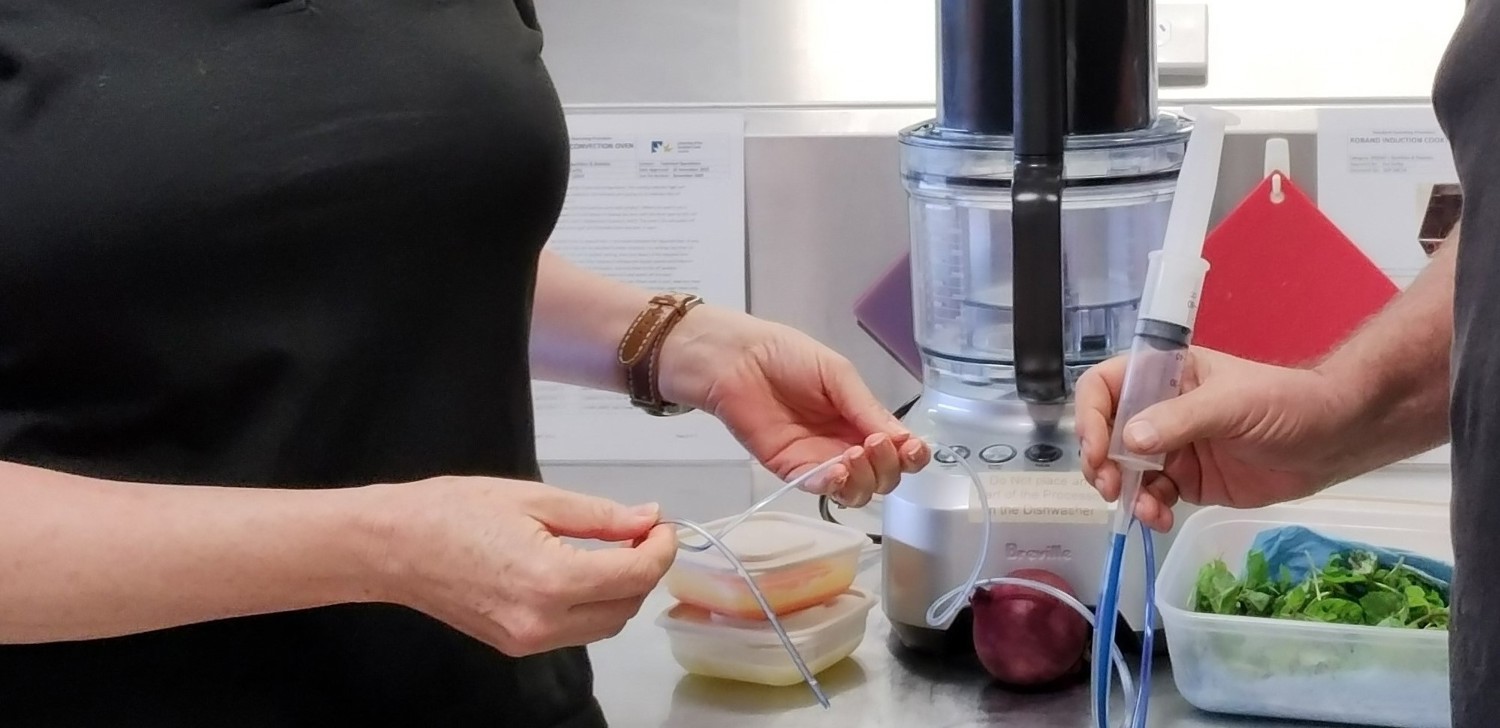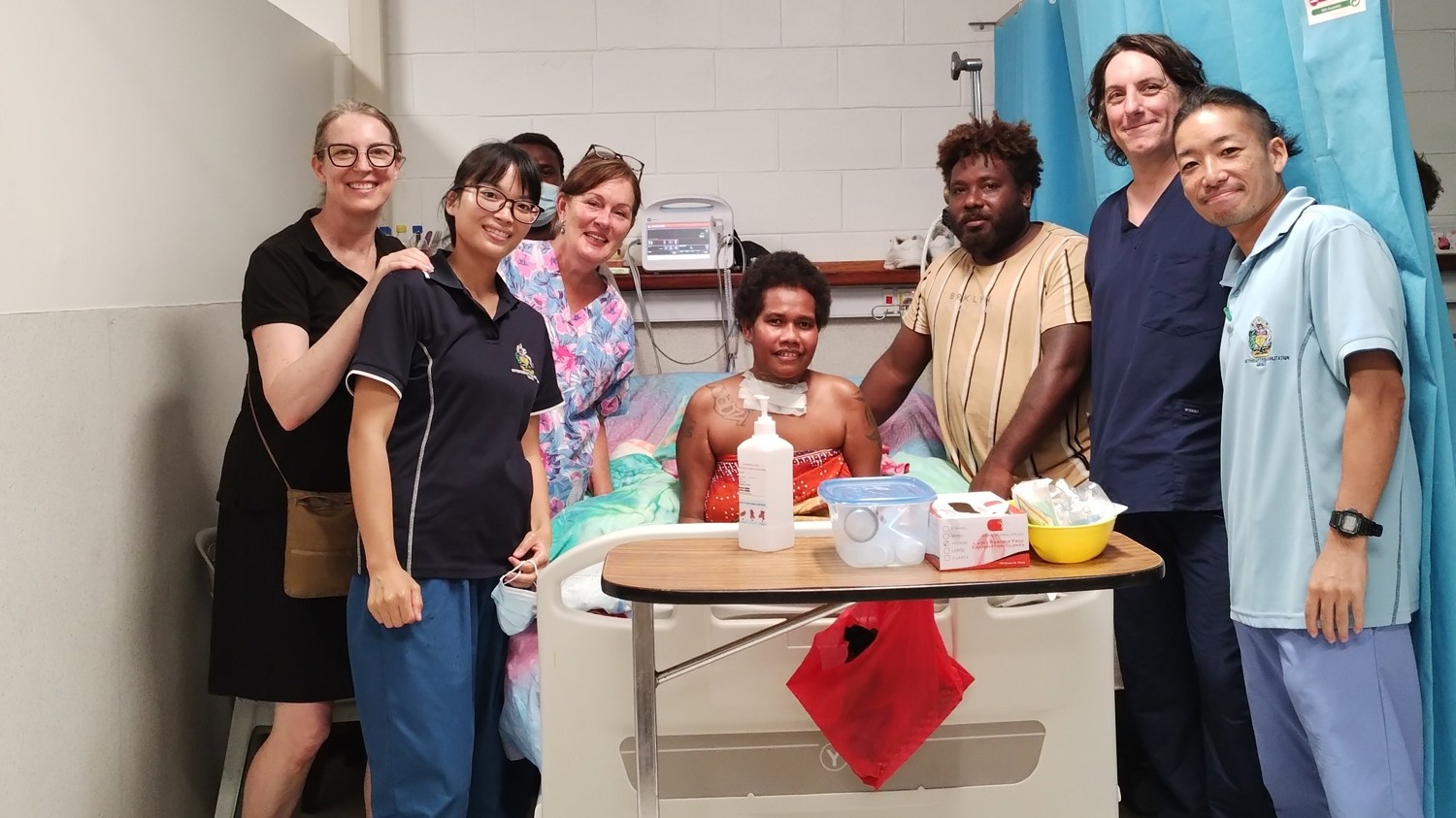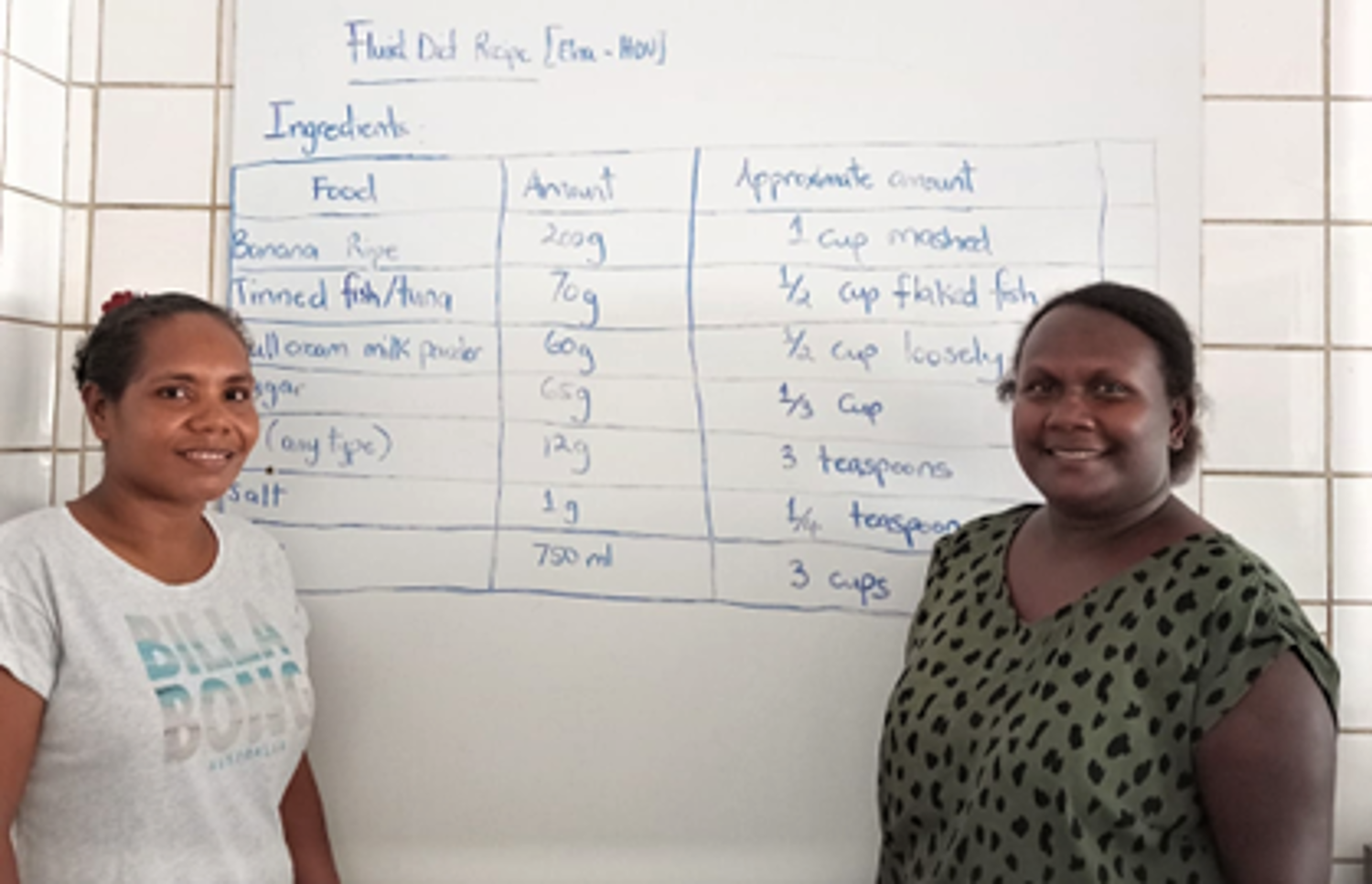For three months, patient Elna Geremi lay paralysed and hooked up to a ventilator in the Solomon Islands' National Referral Hospital.
But within three days of being the first patient to benefit from an innovative tube feeding initiative supported by the University of the Sunshine Coast, she was able to start breathing on her own.
For UniSC dietetics and nutrition expert Tania Wiesmayr-Freeman, it was heart-warming proof of the project’s potential to protect hospital patients in the South Pacific nation from malnutrition and help give them the best chance of recovery from illness or surgery.
UniSC hopes to expand the project across the Pacific Islands and eventually share the methodology with other countries and refugee camps around the world, where resources are limited and similar challenges are faced.
“When a patient can’t eat for various medical reasons, tube feeding is often the answer, but in places like the Solomon Islands, ensuring they are receiving the proper nutrition needed to fight off infections and accelerate recovery can be difficult,” Mrs Wiesmayr-Freeman said.
“It is a completely different world to hospitals in Australia, which makes it difficult to measure the quality of feeds or how much nutrition patients are receiving.”
Tube feeding involves giving patients vital nutrition in the form of liquid formula that is fed directly into the stomach or small intestine through a tube.
“In Australia, tube feeds are bought in pre-prepared packs and trained staff use special pumps to meticulously feed the patients in measured doses, ensuring they are receiving adequate nutrition," Mrs Wiesmayr-Freeman said.
“In the Solomon Islands, the feed is often a liquid diet that needs to be administered with a big syringe, and often it is the families of the patients who do it.
“Another complication is that the hospital kitchen doesn’t always have access to the full range of food needed. They are trying to do the best they can with limited resources."
Tube feeding was not an initial focus of UniSC’s ongoing research and outreach in the Pacific Islands but, after identifying a need, a collaborative effort began to find a solution.
Mrs Wiesmayr-Freeman and UniSC nursing lecturer Dr Matt Mason are part of a team of Australian clinicians from the Pacific Region Infectious Disease Association supporting hospitals in the Solomon Islands to manage patients with bloodstream infections and other infections, through remote multidisciplinary meetings.
Dr Mason said it soon became clear many of the patients were experiencing issues with their recovery that stemmed from malnutrition.
“We first worked online with the National Referral Hospital team to improve tube feeding practices,” Dr Mason said.
Next, with support from UniSC’s Centre for International Development, Social Entrepreneurship and Leadership, a group travelled to Honiara to work face-to-face with staff, patients and their families at the nation’s first high dependency unit, a new facility funded by the Australian Government.
“We provided training support for the hospital team to make their own blended tube feeds out of readily available, cheap local foods and develop a process to manage storage and administration,” Dr Mason said.
“By enhancing tube feeding and understanding of the importance of diet, we can help patients feel better, recover faster and prevent them developing complications related to malnutrition."
Good nutrition is vital to fight infection
Mrs Wiesmayr-Freeman said sick people needed more food than healthy people to fight infections.
“The need to improve tube feeding processes really hit home when we discovered that a previous patient had come in as young, fit, 80kg 18-year-old and was down to 30kg when he was discharged after being tube fed," she said.
Elna's story highlights how the battle against malnutrition required creative, locally based solutions, and a collective effort by health workers, volunteers, catering staff and families, with support from UniSC and other Australian institutions, Mrs Wiesmayr-Freeman says.
The 23-year-old had contracted the potentially deadly Guillain-Barre syndrome, which had started as paralysis in her legs and worked its way up her body to her lungs.
For three months she was on breathing machines and could not eat because it was important to keep her airways clear. Within three days of receiving the new pureed tube feed, she had started to come off the ventilator.
“Tube feeding was the only option, but the feeds she was having before this project were really like a thin vegetable soup – and potentially not even making up one third of her daily nutrition requirements,” Mrs Wiesmayr-Freeman said.
During the visit, the team provided guidance to the hospital on infectious disease control, as well as conducting audits and implementing improvements. They also ran sessions on nutrition for the Diabetes Outpatients team.
They have now established a long-term strategy with the National Referral Hospital to provide nutrition and dietetics support to the Solomon Islands hospital, through fortnightly videoconference meetings and regular visits.
UniSC’s Centre for International Development, Social Entrepreneurship and Leadership is supporting the initiative as part of its work to help develop local capacities in the Solomon Islands and other Pacific Island nations, with health and wellbeing as key priorities.
CIDSEL General Manager Tami Harriot said this was at the forefront of CIDSEL’s activities.
“Supporting our colleagues to engage and enable service delivery to our global neighbours, we aim to be part of the change we want to see in this world, doing our part to be better, together," she said.
Media enquiries: Please contact the Media Team media@usc.edu.au





